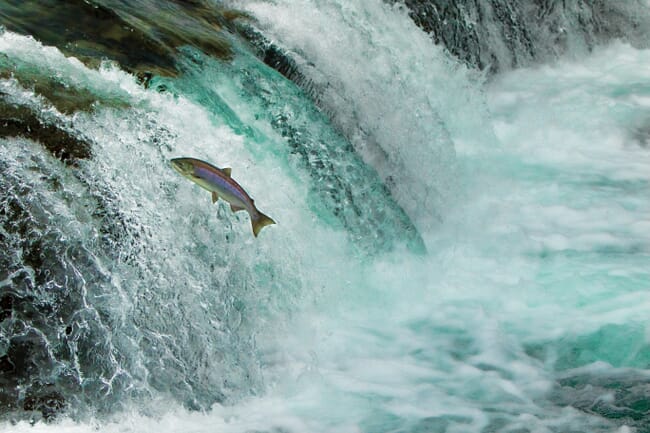The official Scottish Government salmon catch statistics for 2018, published on 24 April, are the lowest since records began in 1952 – a decline attributed to “environmental change and a range of human impacts across the Northern Hemisphere” by Fisheries Management Scotland.

The statistics show that only 37,196 salmon and grilse were caught in Scotland during 2018, which equates to 67 percent of the previous 5-year average. Of these 0.1 percent were reported as being of farmed origin.
Dr Alan Wells, chief executive of Fisheries Management Scotland said: “Figures for 2018, taken together with those of recent years, confirm this iconic species is now approaching crisis point.
“Some of the factors impacting on wild salmon stocks may be beyond human control. But Scotland’s Government and regulatory authorities now have a historic opportunity to do everything in their power to safeguard the species in those areas where they can make a difference. Salmon conservation must become a national priority in what is the International Year of the Salmon.
“We are calling on all regulatory authorities urgently to place a renewed emphasis on the crucial importance of salmon conservation. There are many examples where positive interventions have already helped, but more must be done. This will require Scottish Government and agencies to coordinate their efforts to protect salmon in a way that really isn’t happening currently.”
Meanwhile, Environment Secretary Roseanna Cunningham said: “The decline in wild salmon numbers is of great concern, and I’m determined that we safeguard the future of this important species.
“The problem is down to a range of complex factors, many of which are outwith our control, including the unprecedented water shortages Scotland experienced last summer.
“We have identified 12 groups of high level pressures on the species, and we’re working closely with key partners to address these. Last year, for example, we committed £500,000 to fund research so we can better understand the problem and mitigate against it.
“In addition, we are providing around £5 million a year to the Water Environment Fund to allow SEPA to remove barriers to fish migration in rivers around Scotland.
“I’d also like to highlight the conservation efforts of Scotland’s anglers last year, who returned such high numbers of the salmon they caught.”



